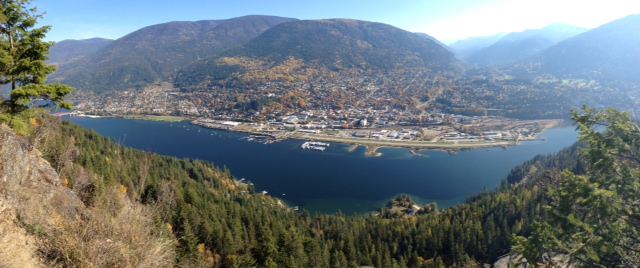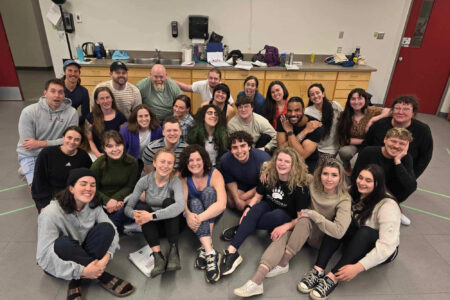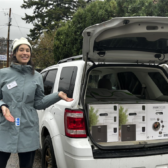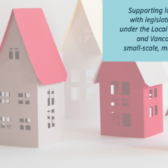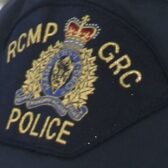City begins crackdown on illegal short-term rentals in Nelson
The heat will be turned up again on short-term rentals operating illegally in the city.
A more extensive round of enforcement of the new rules governing short-term rentals will begin this month as the city looks to undertake a third attempt to “ensure consistent standards and fairness” for the more than 50 short-term rental applications received this year.
The first two rounds of inspection were not without some bite. According to the city, “numerous fines have and will continue to be issued to the remaining handful of unlicensed short-term rentals that continue to operate.”
That means those short-term rentals found to be in non-compliance with zoning or the lack of a business licence will face a fine of up to $500 per day.
“City council has made it a priority to accommodate these operations for the benefit of visitors, residents and neighbourhoods, while at the same time mitigating the potential detrimental impacts to the community,” read a release from the city.
According to figures released earlier this year by the city, there were a supposed 140 short-term rental accommodation providers operating in the city, but just over 50 have made application to the city under its new rules.
How many of those short-term rentals have slipped under the radar is hard to say since the city opted to not go with specific enforcement based on a city staff recommendation, noting Nelson was in a position to achieve a higher compliance rate than other cities have achieved with its “dynamic” regulations and a realistic enforcement strategy.
When it was drafting legislation to deal with short-term rentals, city staff research found aspects of the community and the tourism industry cautioned against outright prohibition of short-term rentals (STR) in Nelson. It also believed enforcement of a prohibition would consume too many municipal resources. A negative impact on tourism, particularly in the summer, would be a possible consequence.
The majority of short-term rentals prior to legislation were considered illegal by virtue of the fact they lacked a business licence and were not in compliance with zoning.
A view of the industry
The industry has unique nuances, according to data collected on Nelson’s STRs.
Most STRs are listed as available for rent for less than 70 per cent of the time; many are much more occasional.
According to a city staff report delivered to council Monday, out of 87 Airbnb (short-term rentals) listings reviewed last May, 14 had no reviews.
“Indicating that they possibly have not yet been rented. Most only accept multi-night bookings,” the report noted.
Seventy-seven per cent are entire dwelling units. A number are listed on multiple online platforms.
The research revealed the average nightly rate for an Airbnb in Nelson is $107, well below the average rate in Tofino, Kimberley and Sechelt, and half of that of Revelstoke and Fernie.
Self-reported safety data illustrate that fire safety is not a given, it was found. Out of 87 listings, 53 self-reported having a fire extinguisher and 69 a smoke detector.
Speaking of the law
Municipalities carry a statutory obligation to ensure the fire safety of hotels, lodging houses, “and any other building, except a private dwelling, where lodging is provided” by means of regular inspection.
Short-term rental business licencing is expected to generate new revenue that can be used to increase general bylaw enforcement capacity, a city staff report noted.
The proposed $100 tri-annual inspection matches the building inspector’s current cost recovery charge for inspections.
Key regulations
Some of the regulations for the STR market in Nelson include:
- STRs would be allowed almost everywhere, however city-wide caps and a density cap are proposed in residential areas, in light of general support for this through public consultation (this is intended to maintain the integrity of residential neighbourhoods. Any property owner is free to apply to rezone to commercial, if that is their intention for the property). A density cap would help ease on-street parking competition without requiring new off-street parking to be built at great cost to resident-operators and Nelson’s natural capital;
- Distinguish between rooms for rent (such as a conventional bed and breakfast) and entire dwelling units;
- A new business licence category of up to $800 for a year-round, entire-dwelling unit rental;
- The availability of monthly and summer-only licences to facilitate occasional home sharing and to enable landlords of student housing to create needed summer tourist accommodation supply;
- Year-round licence-holders to contribute to funding tourism marketing;
- Fire safety inspections and a one-time proof-of-insurance requirement;
- Allow for the short-term rental of multifamily building units for the first time, provided that the property owner/manager or strata council has no objection;
- A principal residency requirement, supported by public consultations; applicants must demonstrate that the property is their principal residence. A new zone is proposed to allow for the possibility of a non-resident property owner to rezone a secondary residence for STR purposes. Nelson already requires potential B&Bs outside of commercial areas to rezone if they wish to have more than two guest rooms;
- Initial priority to existing STRs and bed and breakfast’s, but licencing requirements will still be obligatory.
- A process to revoke a licence in the case of a problematic STR.
- An online, publicly-accessible directory of all licenced short-term rentals and their 24/7 contact.
The new regulations are still a work in progress, however. There is expected to be a review of the regulations in 2018, coupled with feedback from the public on how the regulations are working.
People can send feedback on the short-term rental regulations to Alex Thumm at humm@nelson.ca.
More information on the regulations and licencing, as well as an interactive map of all licenced short-term rentals, can be found at www.nelson.ca.
Information on how to submit a complaint regarding a short-term rental can also be found on-line.



